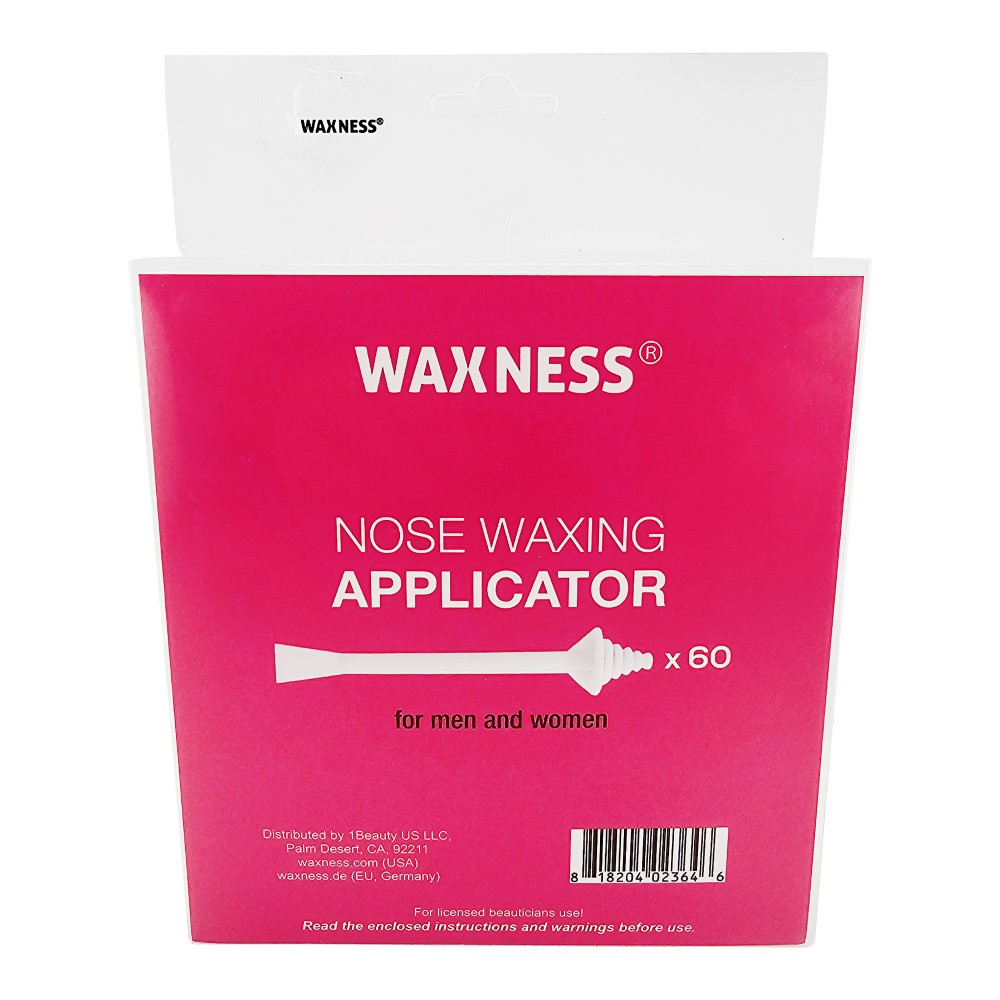- Out-of-Stock














-Improved tip adhesion to the wax
-Safety-collar design prevents over-insertion
 Security policy
Security policy
(edit with the Customer Reassurance module)
 Delivery policy
Delivery policy
(edit with the Customer Reassurance module)
 Return policy
Return policy
(edit with the Customer Reassurance module)

Guarantee safe & secure checkout
These wax applicators are specially designed to allow insertion, but a safety collar reduces the risk of over-insertion and consequent disruption of sensitive membranes that line the nasal cavity. These membranes have physiological functions within the nasal cavity and should not be disturbed.
The tip design is improved to have a superior adhesion to the wax.
Directions:
- CAUTION: IF YOU HAVE A MOUSTACHE, USE THE MOUSTACHE STENCILS TO PROTECT THE AREA. HOLD THE STENCIL TIGHT OVER THE AREA WHEN INSERTING THE APPLICATOR.
- Clean the inside of the nostrils with a Dr. Bump intimate spa tissue.
- Dip the tip end of the applicator into the wax and ensure the wax covers the entire base of the collar. Do not dip deeper than the base of the collar (Figure A).
- Twist the applicator when you take it out of the wax to prevent the wax from dripping.
- Pull tightly down on your upper lip to hold the skin taut underneath the nose (Figure B) and insert the tip end into the nose. The safety collar should sit outside the nostril (Figure C). Do not move or twist the applicator once it has been inserted.
- Let the wax cool inside your nostril for at least 60 seconds but no more than 2 minutes.
- IT IS IMPORTANT TO LEAVE THE WAX TO COOL BETWEEN 1 AND 2 MINUTES. LESS THAN 60 SECONDS WILL NOT ALLOW THE WAX TO SET AND MORE THAN 2 MINUTES WILL CAUSE THE WAX TO BECOME BRITTLE. BOTH THESE SITUATIONS WILL RESULT IN WAX REMAINING INSIDE THE NOSTRIL, MAKING IT DIFFICULT TO REMOVE.
- To remove the wax, hold the stem of the applicator tightly and pull it down in one swift movement (Figure D).
- Discard the applicator after use.
- Repeat the process for the other nostril.
Data sheet
Specific References